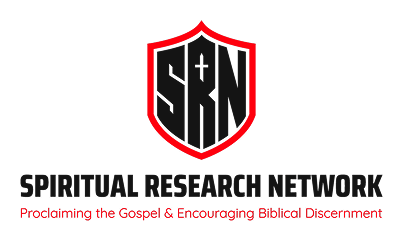Leaving a cult or spiritually abusive group is a life-altering decision. Many who make this choice experience confusion, grief, anxiety, or even fear. Whether you’ve left a high-control religious group or are helping someone who has, it’s essential to understand what recovery looks like.
Healing takes time, truth, and support. Cult recovery resources play a critical role in this process. They provide education, safety, and direction rooted in biblical truth.
Understanding the Need for Recovery
Spiritual deception is deeply damaging. Cults teach false doctrine and often reshape a person’s identity, beliefs, and community. Many victims lose their sense of self, experience distrust toward others, or struggle to reconnect with God. Some feel ashamed for being misled. Others fear judgment from family or friends. These are common responses to spiritual abuse.
Recovery involves more than leaving the group. It includes unlearning false teachings, recognizing manipulation, and rebuilding a foundation based on Scripture—not fear, legalism, or control. People in recovery need more than information; they need compassion, truth, and a biblical framework for understanding what happened and how to move forward.
Recognizing Signs of Spiritual Abuse
Spiritual abuse often includes manipulation, fear-based control, and twisting of Scripture. Victims may have been told questioning leadership was “rebellion” or that leaving the group would result in God's judgment. High-control groups often isolate members from outside influences and demand full allegiance to their interpretation of the Bible.
Healing begins when victims learn that these tactics are not biblical. God does not use fear to control His people—He draws them through grace, truth, and freedom in Christ (John 8:32). Recognizing the abuse is the first step toward healing.
Addressing the Emotional Aftermath
The emotional fallout from leaving a cult can feel overwhelming. Former members may face depression, anger, guilt, or spiritual disorientation. They may struggle with anxiety in church settings or feel unsafe around Scripture.
Cult recovery resources provide context for these feelings. Victims begin to see that emotional turmoil is a normal response to trauma—not a sign of weakness or failure. With time and support, these emotions often begin to stabilize. Biblical counseling can help restore peace and rebuild a sense of identity in Christ.
Relearning Scripture Without Fear
Cults often misinterpret or misuse Scripture to maintain control. Former members may find reading the Bible painful or confusing because of how it was used against them. They may wonder what is true and what is false.
Part of recovery involves approaching Scripture with fresh eyes. Trusted teachers, doctrinally sound resources, and consistent Bible study help reframe God's Word as life-giving truth—not a tool for abuse. God's Word brings healing, not bondage (Psalm 19:7).
Finding a Safe Church or Community
Leaving a cult often means leaving your entire social structure. The loss can be profound. People recovering from spiritual abuse need a healthy, biblically grounded community—but trust is hard to rebuild.
A safe church honors Christ as the Head, teaches Scripture in context, and values accountability. It does not elevate leaders as untouchable or treat disagreement as rebellion. Finding this type of church takes time, but it’s a key part of lasting recovery.
Supporting a Loved One in Recovery
If someone you care about is coming out of a cult, your support matters. Be patient. Don’t rush them to heal or “move on.” They may need to talk, cry, or even retreat at times. Be a steady, loving presence. Encourage biblical truth but avoid pushing too hard.
Cult recovery resources can help you support others wisely. Knowing what to say—and what not to—makes a difference in their healing process.
Start Healing Today with Trusted Cult Recovery Resources
Spiritual recovery is not linear, and no two stories are the same. But healing is possible—through Jesus, His Word, and the support of those who understand the unique trauma of spiritual abuse. Whether you're recovering yourself or walking alongside someone else, access to cult recovery resources provides clarity, biblical truth, and hope.
Need trustworthy guidance? Contact the Spiritual Research Network. You'll find sound biblical teaching, detailed articles on spiritual deception, and practical tools for recovery. You don’t have to walk this path alone.


.jpg)
